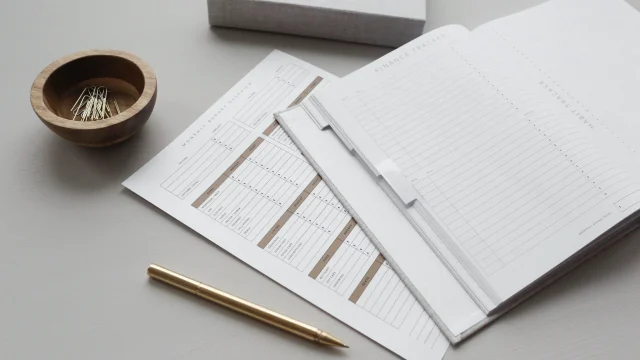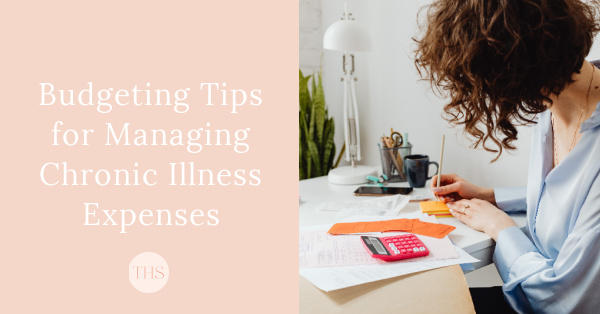14 Ideas for a Comforting Care Package for a Sick Loved One

Living with a chronic illness is hard because, in addition to the pain, your condition can impact many other facets of your life, including your finances. There’s a lot of money spent on doctor visits and hospital stays, plus the cost of medication and potential live-in care.
It can be tough to stay on top of it all, so you need to budget your money properly. It may seem nearly impossible to afford the costs of your illness, but with some research and smart spending, you can make it work.
If you’re spending a lot of money to manage your chronic illness, then know you’re not alone. Medical issues like heart disease cost our healthcare system $216 billion per year, and the cost of care for cancer is expected to rise to $240 billion by 2030. Your costs are a part of that, and if you don’t budget accordingly, it could lead to debt and more stress in your life.
You must be smart about how you spend. Look for resources to help you along so you aren’t filling up credit cards. When you go in for treatment, ask about payment plans because there are options. If you’re receiving acute care, the doctor treats you now and charges you later, so you have time to create a payment strategy. Even if the doctor says they don’t offer payment plans, you can often create an arrangement through third-party providers or loan agencies, like Prosper Healthcare Lending and CareCredit.
There are also specific non-profit organizations that can help with different diseases, such as the Leukemia & Lymphoma Society and CancerCare, both of which can offer assistance and make managing the costs easier. If you ever need help understanding your bills, turn to friends or family who can help you if you’re not feeling well. If you need assistance with your budgeting and have the funds, contact a finance professional for advice.

It’s essential that you create a budget, especially when you have extra medical costs that may spread your finances a bit thin. Sit down and account for your pending and recurring medical bills and regular expenses, like groceries and utilities, and write down everything you owe monthly. Then, compare that with how much money you have coming in and see what you have left over. If money is still tight, then you may need to make adjustments. Can you spend less on gas by taking public transportation for your healthcare appointments? Can you make your lunches at home and buy less food at restaurants? See what you can tweak so you aren’t stressed when new medical bills come in.
If you’re still not where you want to be, sit down and write out some SMART goals that will help you get to a better financial place. More than just a lofty idea, these are specific, measurable, achievable, relevant, and time-bound goals. So, you’re setting goals that achieve something specific in a certain period. For example, you might want to pay off a certain amount on a credit card or medical bill. In that case, your SMART goal would be to tackle that debt by applying $200 per month so you can pay it off in 11 months.
Another SMART goal should revolve around setting up a savings or emergency fund in case an unexpected bill or medical episode occurs. A good goal could be that you will fund a $3,000 emergency account in one year by setting up your paycheck so a portion automatically goes to your savings account.
If you’re like many people with chronic illnesses, healthcare expenses are often where most of your money goes every month, so find ways to reduce those costs.
Depending on your illness, you may spend a lot of money driving to appointments, paying for parking, and buying gas, which can quickly add up. Instead, if possible, set up virtual healthcare appointments that allow you to sign on to your computer at home, talk to your doctor, and get your prescriptions filled without the hustle and bustle of going to those costly appointments. Telehealth is gaining major popularity with doctors and therapists, so it’s worth a shot.
You may be in a situation where you need medical care, but you don’t have insurance to make it more affordable. Even in this case, there are options. For instance, if you lack insurance, you can still get dental care at a reduced cost by going to dental schools, or you can try to negotiate a payment plan with the dentist. You may also get healthcare without insurance by visiting a local community health center.

Finally, while you can’t control your chronic condition, you can stay in shape in different ways to avoid additional costs. For example, you can stay healthy on a budget by taking free workout classes at a local fitness studio, taking walks outside, and drinking tea for the antioxidants that improve your immune system.
Life can have its ups and downs when managing a chronic illness, but by managing your finances, you can remove some of the pressure and make the best of your situation.
For more tips, check out these 38 Budget-Friendly Ideas for Healthy Living.